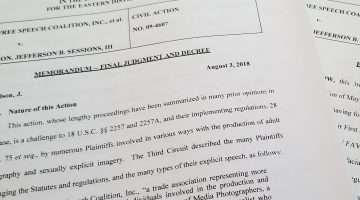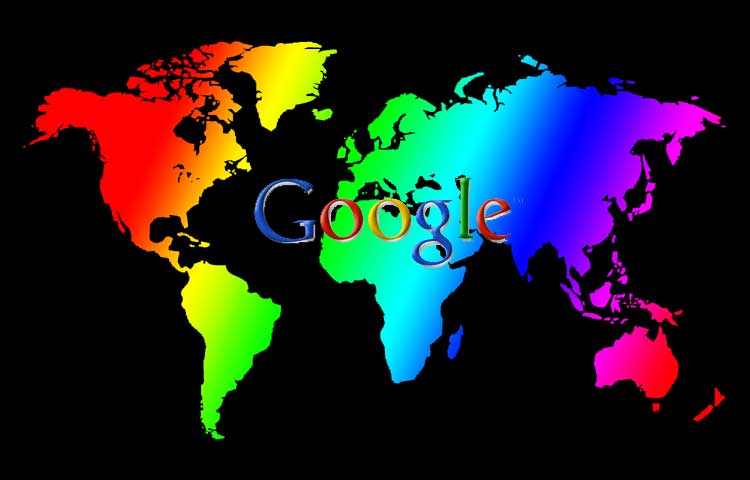 MOUNTAIN VIEW, Calif. – A week after a monumental gaffe classified GLBT-themed books at Amazon.com as “adult content,” Google’s AdWords algorithm seems to be doing the same thing.
MOUNTAIN VIEW, Calif. – A week after a monumental gaffe classified GLBT-themed books at Amazon.com as “adult content,” Google’s AdWords algorithm seems to be doing the same thing.
An apparent bias in the AdWords system was uncovered by gay and lesbian news site BGay.com. According to a Sunday posting at BGay, the company tried to upload an ad containing the word “gay” into Google’s ubiquitous revenue-sharing tool, only to be met with a disconcerting message.
“We were given the error message saying: ‘Gay – Unacceptable Content,’” the terse posting notes. “What’s even worse is the accompanying text: ‘We’ve detected that your ad may contain words often associated with pornography. Google policy prohibits the advertisement of pornography unless it involves consenting adults. Related content is not permitted on the website or as ad text or keywords.”
As search-engine marketing agency AccuraCast noted in a news alert posted Monday morning, “AdWords editorial policies seem to suggest that the word ‘gay’ relates to non-consensual sex or sex with minors, which is certainly out of line, and their homosexual clients are bound to be extremely upset with this.”
By Monday morning, no dedicated backlash had been detected. Rustybrick posted an item to SERountable.com detailing his experience with AdWords. Because he was able to post a “gay” ad to the service, he opined there must have been something about the way “gay” was used in BGay’s ad that triggered Google’s internal censor.
“In the [BGay case], it seems like after the ad was already live, Google made a decision to review the ad later,” rustybrick noted. “Maybe someone felt [BGay’s] ad was offensive and Google pulled it until it can be manually reviewed.”
Unlike Amazon, which overnight became the object of an intense online campaign to rectify perceived homophobia, Google has a reputation for inclusiveness in matters of sexual orientation. The search giant was a vocal opponent of California’s Proposition 8, which in November added a state constitutional amendment banning same-sex marriage.
Amazon’s statement that a glitch in its system accidentally re-classified gay content as pornography did little to assuage outrage among consumers, who have not yet stopped berating the e-tailer in an outpouring of disappointment that has come to be known as AmazonFAIL.
Google has not responded to questions about its AdWords policy regarding the term “gay.” If the rest of the GLBT community follows BGay’s lead, though, the backlash may be less harsh for Google than it was for Amazon.
“We don’t believe Google to be homophobic, but they need to do something about their filters,” the BGay gang noted. “Defining the term ‘gay’ to be pornographic and suggesting that it does not involve consenting adults is definitely offensive.”
According to AccuraCast, “[Google] would do well to set the record straight by correcting this immediately, and also resetting their filters before they are subjected to a [public relations] nightmare similar to what Amazon is currently facing.”












No Comment